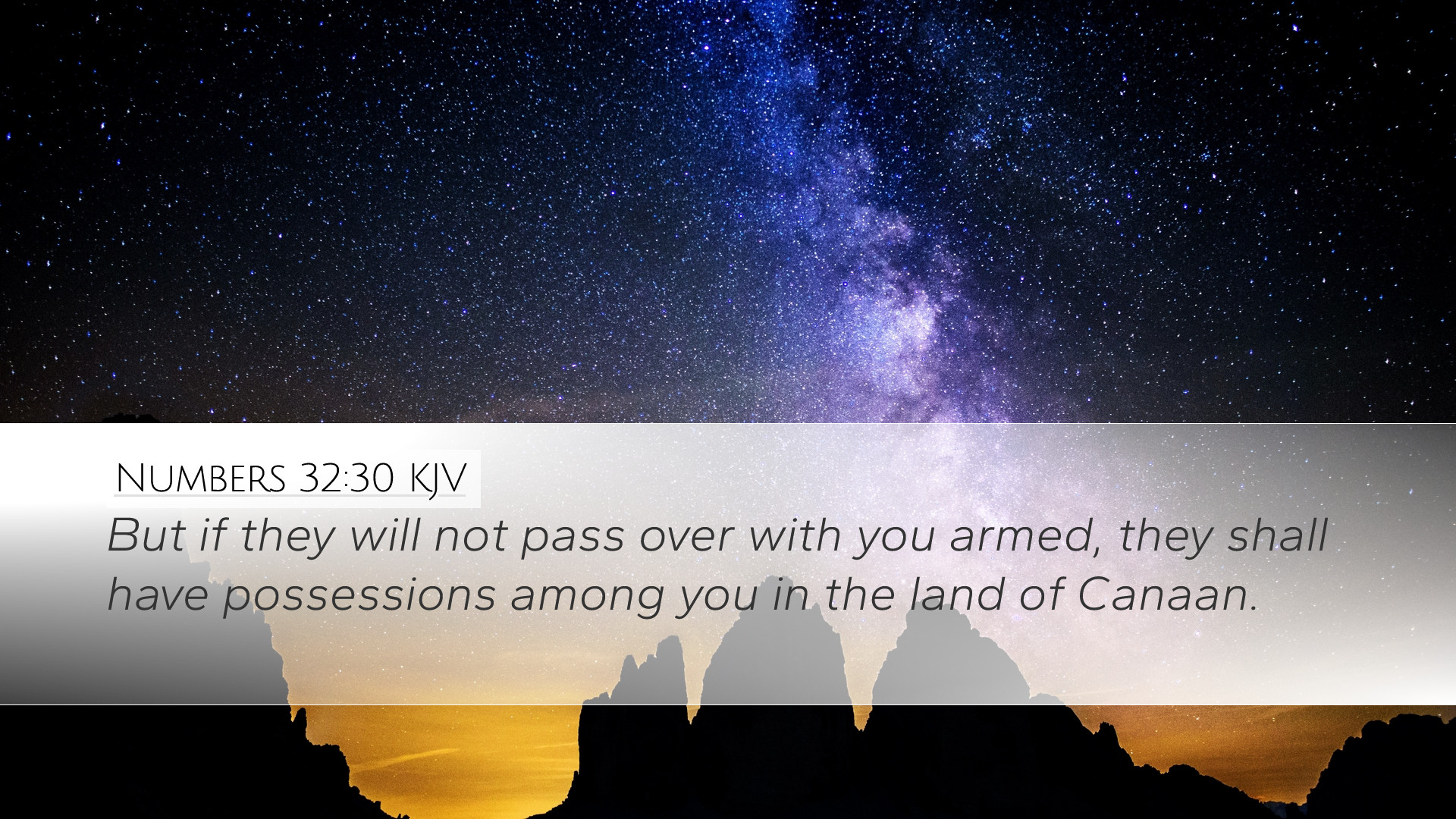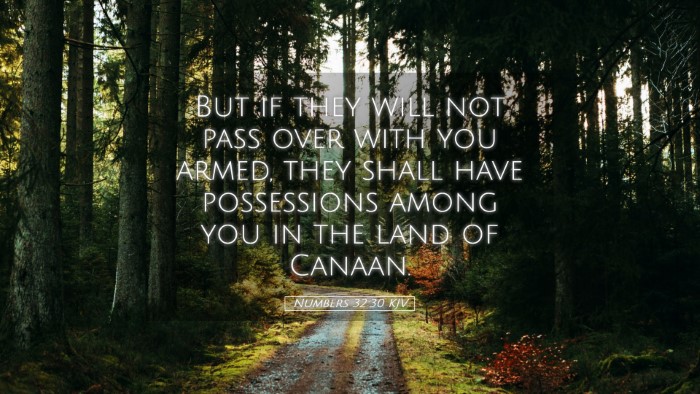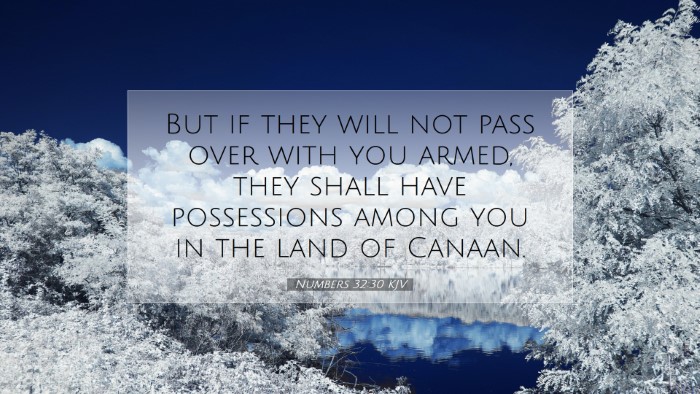Commentary on Numbers 32:30
Numbers 32:30 states: "But if they will not pass over with you armed, they shall have possessions among you in the land of Canaan." This verse is located in the context of the Israelites' journey toward the Promised Land and the request made by the tribes of Reuben and Gad to settle in the land of Gilead, outside of Canaan proper. Below, we explore insights from well-regarded public domain commentaries.
Contextual Overview
In order to fully grasp the significance of this verse, it is essential to understand the broader context of the Israelites’ journey and the tribes involved:
- Background: The Israelites, having been delivered from slavery in Egypt, are now on the brink of entering the land promised to them by God. The various tribes are assigning lands after the conquest of these territories.
- Tribes Involved: The tribes of Reuben and Gad expressed their desire to remain on the eastern side of the Jordan River, which posed the question of their commitment to the collective journey into Canaan.
- God’s Leadership: The conversation reflects the ongoing discourse between God's directions and the manifestation of His will through the leadership of Moses.
Commentary Insights
Matthew Henry's Perspective
Matthew Henry emphasizes the spirit of unity and collective responsibility that should embody the Israelites. He notes: "They must not only desire the land but also show commitment to their brethren’s cause." This verse reflects a significant principle—the idea that no one should claim rest while others strive for victory.
Albert Barnes' Insights
Albert Barnes sheds light on the practical implications of Reuben and Gad's request. He writes: "If they will not pass over armed, it is a sign that they do not fully trust in God’s promise." This commentary stresses that being part of the community means fully supporting the shared mission by actively participating in the collective struggles and victories.
Adam Clarke's Analysis
Adam Clarke gives a more theological reflection stating that "The willingness to bear arms for the sake of their brethren was a necessary condition for their inheritance." Clarke expands this idea to emphasize the necessity of readiness and sacrifice in faith. He argues that the true essence of faith involves active participation in God's purposes within the community.
Theological Reflections
This verse not only reflects a historical situation but also offers significant theological insights relevant to communities of faith today:
- Collective Responsibility: The Israelites represent a community that is bound by shared responsibilities. This reflects the Church's mission—believers are called to support one another for the collective advancement of God’s Kingdom.
- Faith and Action: The call for the tribes to engage in battle signifies that faith demands action. Just as Reuben and Gad needed to support their brothers, Christians today are called to engage actively in their communities, promoting unity and mutual support.
- Boundaries and Community: The desire of Reuben and Gad to remain outside of Canaan serves as a reminder of the sometimes isolating nature of personal choices that impact community dynamics. Thus, it’s imperative to consider how personal decisions affect the larger body of believers.
Conclusion
Numbers 32:30, as examined through the eyes of Matthew Henry, Albert Barnes, and Adam Clarke, reminds us of essential values within our faith journey—unity, sacrifice, and the commitment to collective missions. The message encapsulated in this verse continues to resonate with believers, prompting them to reflect on their roles within their communities and the shared work of building God's Kingdom.


